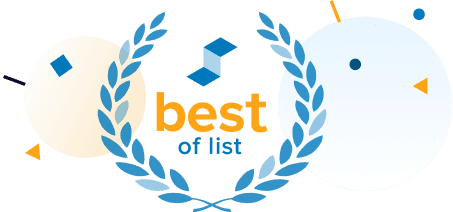Best "No-Closing-Cost" Refinance Loans
April 2024
Refinancing your mortgage includes closing costs, but some lenders waive the origination fees or even offer refinance loans with no upfront lender fees.

SuperMoney may receive compensation from some or all of the companies featured, and the order of results are influenced by advertising bids, with exception for mortgage and home lending related products. Learn more
Refinancing a mortgage comes with closing costs just like the original home loan. These costs typically include origination fees, mortgage points, appraisal, and underwriting fees. On average, it costs $5,000 in closing costs to refinance a loan, according to a study by Freddie Mac. However, some lenders allow you to avoid the upfront cost by offering so-called "no-closing-cost" refinance loans.
Here is our list of the best lenders that offer refinance loan options that don't charge origination fees.
Refinancing your mortgage can be a smart move for many reasons, but knowing when, how, and at what cost is the key to your success.
What is a no-closing-cost refinance loan?
A no-closing-cost refinance is a refinance loan where you don't have to pay for the closing costs upfront. Instead, you get to add the fees to the loan amount or accept a higher interest rate. It helps homeowners who either don't have the cash or don't want to touch their savings to finance a refinance.
The first thing to understand when considering a no-closing-cost refinance loan is you still have to pay some of the costs of preparing a refinance, but you get the opportunity of financing it over time.
It is sometimes possible to get some of the costs waived, but you will have to pay for some closing costs by either getting a higher interest rate or by bundling the fees into the loan amount.
What are the pros and cons of a no-closing-cost refinance loan?
There is a lot to love about no-closing-cost refinance loans, but there are some disadvantages to consider also. Here are the main takeaways you will want to consider.
The benefits of a no-closing-cost refi
Let's go into more detail about the main benefits of a no-closing-cost refi.
Going with a no-closing-cost refi allows you to reduce the opportunity cost of using savings to pay for a refinance and use your cash for other purposes, such as investments or home improvement.
You have the option of tapping into your home equity without having to move. Although it is true you can do this with traditional mortgage refinance loans that do charge closing costs, this will mean you have more money available after the transaction.
If you qualify for lower interest rates, you can save money on your overall mortgage with a refinance. Although you will eventually pay some clsoing costs in the form of higher interest rates or a larger loan amount, but you can still save money if you can get a mortgage with a lower APR.
The disadvantages of a no-closing-cost refi
Getting a mortgage to refinance with no-closing costs is not for everyone. In the long run, it can be cheaper to get a traditional refinance and pay the closing costs upfront. But if your priority is to minimize out-of-pocket payments, then this may be the right option for you.
Just remember that it's possible your monthly payments will increase when you refinance. This depends on the terms and rates of the new loan term you choose.
Alternatives to a mortgage refinance
A cash-out refinance is a smart option if you can qualify for a mortgage with lower interest rates. If you can't, other options, such as a shared equity agreement, might be a better alternative. That way, you will avoid paying higher interest rates on a bigger mortgage.
Shared equity finance agreements are not technically loans or mortgages. They don't increase your debt and there are no monthly payments. Typically, it is easier to qualify for a shared equity agreement than a mortgage. For instance, home equity investors will consider homeowners with a high debt-to-income ratio and they usually have a higher maximum loan-to-value ratio.
A shared equity agreement can be a good option if you
- need cash but don't want a monthly payment.
- have high-interest debt to pay off.
- need to finance a home improvement or want to start a business
The cost of a shared equity agreement will depend on the value of your home when either the contract ends or you sell the property. The repayment will include the initial amount you received plus a share in the home's appreciation since you entered the agreement.
About the Author

SuperMoney
SuperMoney is the most comprehensive financial services comparison site around. We have published hundreds of personal finance articles and provide detailed reviews on thousands of financial products and services. Our unbiased advice and free comparison tools help consumers make smart financial decisions based on hard data, not marketing gimmicks.